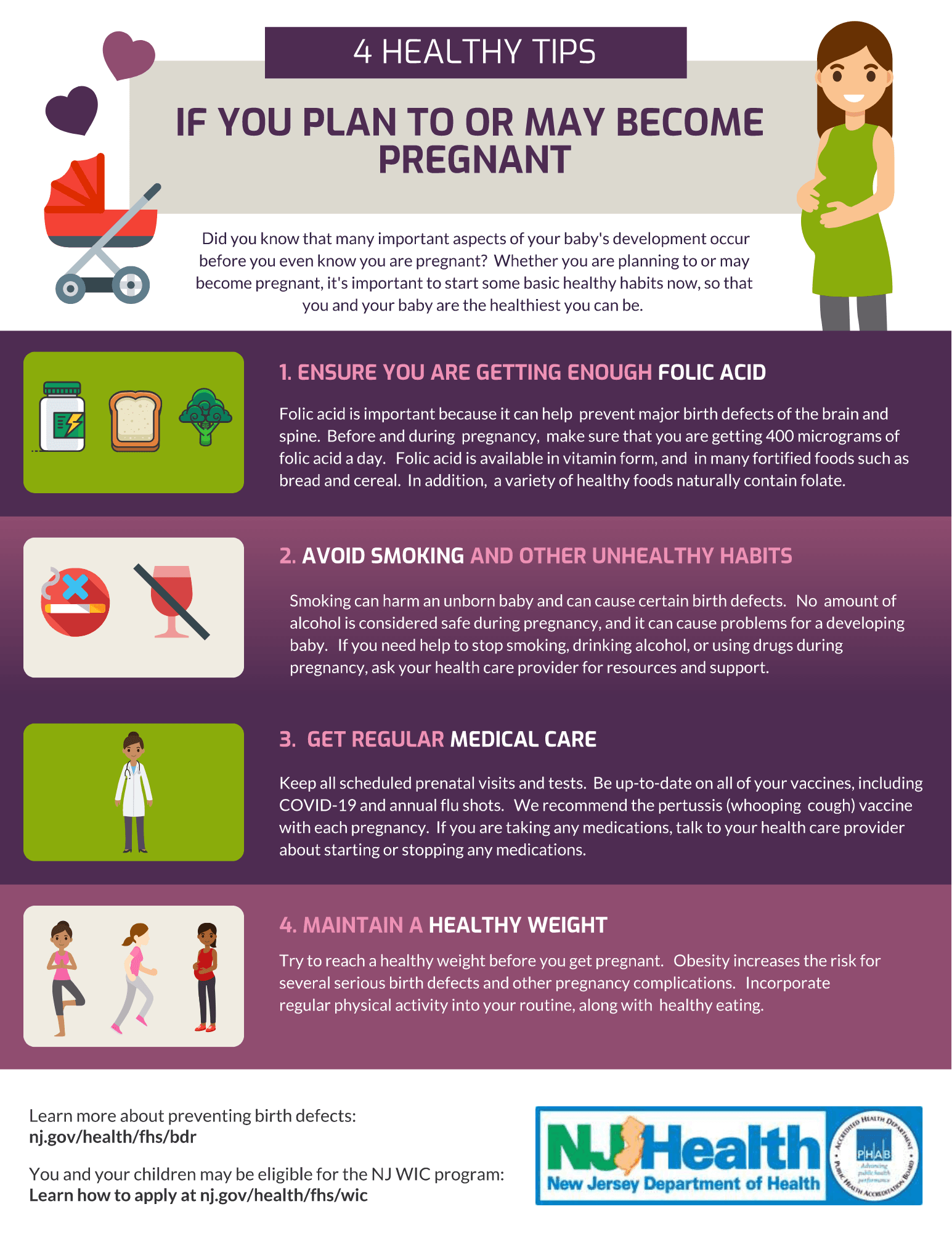
Planning a Pregnancy: A Comprehensive Guide
Introduction
Planning a pregnancy is an exciting and momentous decision that requires careful consideration and preparation. By taking the necessary steps to prepare both physically and emotionally, you can increase your chances of a healthy pregnancy and a healthy baby. This comprehensive guide will provide you with the essential information you need to plan a pregnancy, from preconception care to prenatal appointments.
Preconception Care
Before you conceive, it is important to optimize your health and well-being. This includes:
- Maintaining a healthy weight: Being overweight or underweight can affect fertility and pregnancy outcomes.
- Eating a nutritious diet: A balanced diet rich in fruits, vegetables, and whole grains provides essential nutrients for both you and your future baby.
- Getting regular exercise: Exercise helps maintain a healthy weight, reduces stress, and improves overall well-being.
- Quitting smoking: Smoking can damage your eggs or sperm and increase the risk of miscarriage and other pregnancy complications.
- Limiting alcohol intake: Excessive alcohol consumption can impair fertility and harm your baby’s development.
- Managing stress: Stress can affect hormone levels and ovulation. Find healthy ways to manage stress, such as yoga, meditation, or spending time in nature.
Prenatal Appointments
Once you have conceived, it is important to schedule regular prenatal appointments with your healthcare provider. These appointments will monitor your pregnancy and ensure the health of both you and your baby.
- First prenatal appointment: This appointment typically occurs around 8-12 weeks of pregnancy. Your provider will perform a physical exam, review your medical history, and order blood and urine tests.
- Subsequent prenatal appointments: These appointments will occur every 4-6 weeks until 28 weeks of pregnancy, and then every 2-3 weeks until delivery. Your provider will monitor your weight, blood pressure, and fetal growth. They will also discuss your diet, exercise, and any other concerns you may have.
Prenatal Tests and Screenings
During your prenatal appointments, your provider may recommend certain tests and screenings to assess your health and your baby’s development. These may include:
- Blood tests: Blood tests can screen for genetic disorders, infections, and other health conditions.
- Ultrasound: An ultrasound uses sound waves to create images of your baby and assess their growth and development.
- Amniocentesis: This test involves taking a sample of amniotic fluid to check for genetic disorders and birth defects.
- Chorionic villus sampling (CVS): This test involves taking a sample of placental tissue to check for genetic disorders.
Labor and Delivery
As your pregnancy progresses, your healthcare provider will discuss your labor and delivery options with you. This may include:
- Vaginal delivery: This is the most common type of delivery, where the baby is born through the vagina.
- Cesarean section (C-section): This is a surgical procedure where the baby is delivered through an incision in the abdomen.
Postpartum Care
After you give birth, you will need to attend postpartum appointments to monitor your recovery and the health of your baby. These appointments may include:
- Physical exam: Your provider will check your incision (if you had a C-section) and assess your overall recovery.
- Breastfeeding support: If you are breastfeeding, your provider can help you with any challenges you may be experiencing.
- Emotional support: Giving birth can be an emotionally challenging experience. Your provider can provide support and resources to help you cope.
Additional Considerations
In addition to the steps outlined above, there are a few other considerations to keep in mind when planning a pregnancy:
- Age: Fertility declines with age, so it is important to consider your age when planning a pregnancy.
- Medical conditions: Certain medical conditions, such as diabetes or high blood pressure, can affect pregnancy. It is important to manage these conditions before conceiving.
- Medications: Some medications can harm your baby during pregnancy. It is important to discuss any medications you are taking with your healthcare provider before conceiving.
- Support system: Having a strong support system of family and friends can be invaluable during pregnancy and childbirth.
Conclusion
Planning a pregnancy is a journey that requires preparation and commitment. By following the steps outlined in this guide, you can increase your chances of a healthy pregnancy and a healthy baby. Remember to consult with your healthcare provider throughout the process for personalized guidance and support.